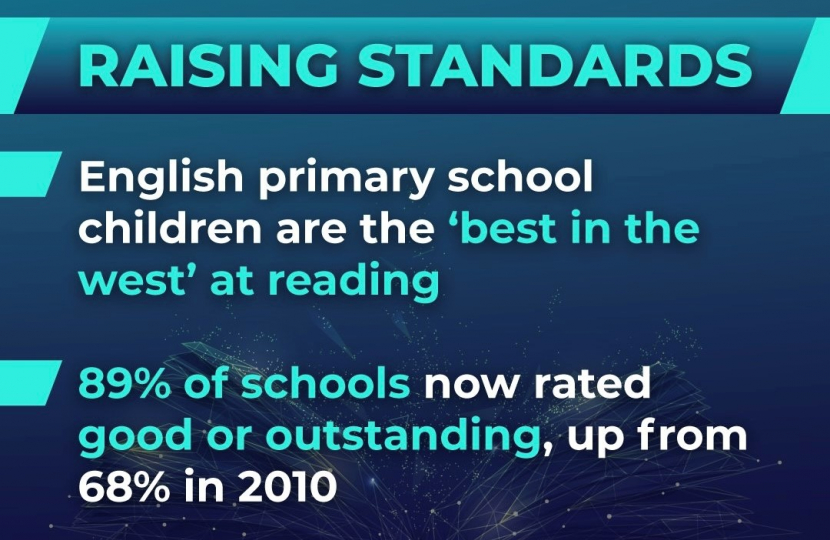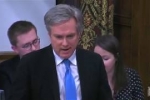
There can be few more important tasks than securing the best start in life for the next generation.
Today, the opportunities for our young people can lie across the globe and a world-class education is vital to ensure all are helped to fulfil their potential.
We have seen education standards in England rise greatly since 2010. Some 89 per cent of schools are now rated good or outstanding by Ofsted, up from just 68 per cent 14 years ago.
This does not happen overnight. It is only possible as a result of the incredibly hard work and dedication of teachers who continue to put in that extra mile to challenge, inspire and support their pupils to achieve.
The Programme for International Student Assessment (PISA) of 15-year-olds’ mathematics, reading and science ability is conducted by the OECD and seen as the international benchmark for academic attainment.
Last month, the most recent study showed pupils in England have significantly outperformed the international average and risen to 11th for maths: up from 17th in 2018 and 27th in 2009.
Pupils in England have also risen up the rankings in both reading and science. Back in 2009, our pupils were in 25th and 16th place for these respective subjects, rising to 13th in both now.
While these are examples of the progress being made in driving up attainment, it is vital that this is built on further, with long-term decisions needed to improve such achievements for this and future generations.
It is with this in mind that I welcome school funding being increased to almost £60 billion in 2024-25 – its highest ever level in real terms – with Crawley to benefit from a total funding increase of over £4.9 million in 2024-25, compared to 2023-24.
Pupil premium funding rates will increase: to £1,480 for primary school pupils and £1,050 for those in secondary school in 2024-25. This marks an increase of 10 per cent since 2021-22 to support schools in disadvantaged areas to raise educational outcomes for the pupils who need it most.
Last month I questioned the Department for Education about action it is taking to screen pupils for special educational needs and disabilities (SEND) in primary schools. As a Vice President of the British Dyslexia Association, support for SEND pupils is of particular importance. An extra £440 million investment is being made to support pupils with SEND.
Going forward, the Advanced British Standard – a new baccalaureate-style qualification – will see every student in England study some form of maths and English to age 18. Investment of £60 million over two years has already been announced to further improve maths education and help lay the groundwork for the introduction of this new qualification.
Henry Smith MP


